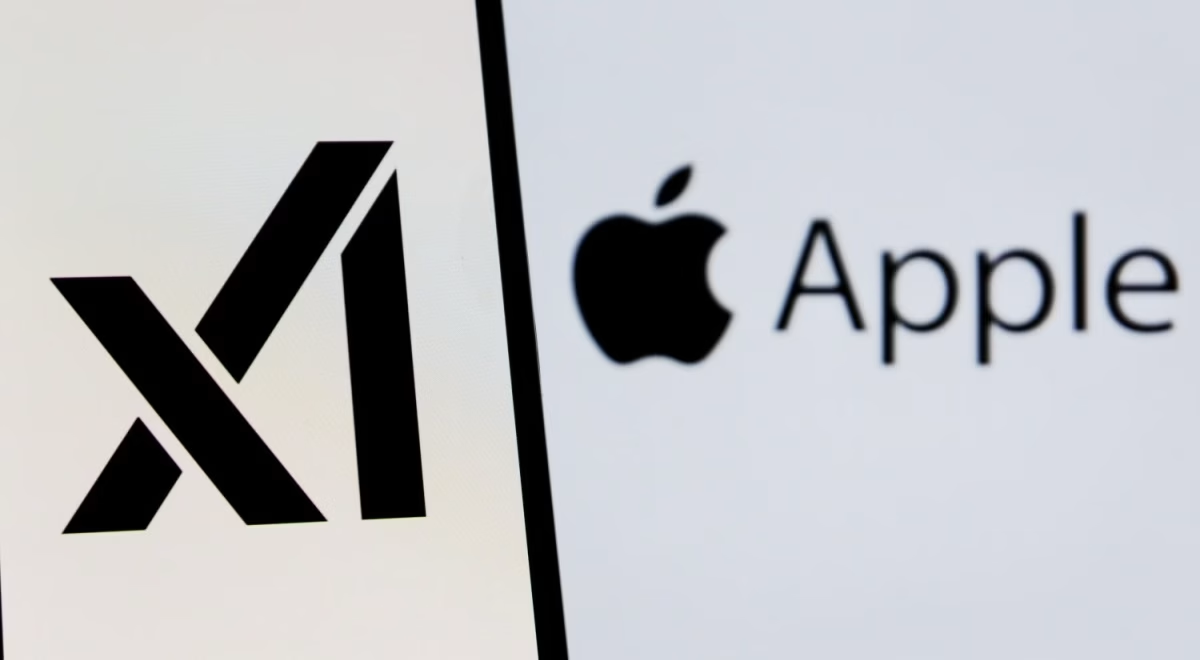In a move that escalates the simmering tensions in the artificial intelligence sector, Elon Musk's xAI has officially filed a lawsuit against both Apple and OpenAI. The suit, lodged in the Northern District of California, alleges anticompetitive practices and breach of contract stemming from the recently announced partnership to integrate OpenAI's technology directly into Apple's upcoming iOS 18 operating system.
This legal bombshell targets the very foundation of "Apple Intelligence," the suite of AI features Apple revealed at its Worldwide Developers Conference (WWDC). While Apple presented the OpenAI integration as a seamless user benefit, xAI's lawsuit paints a starkly different picture: one of a tech giant creating a walled garden not just for apps, but for intelligence itself.
The core of the lawsuit isn't just about business competition. It's a direct challenge to how AI will be delivered to billions of users worldwide.
The Heart of the Allegations
According to the filing, xAI lays out several explosive claims against the two tech titans. The lawsuit is a multi-pronged attack, focusing on antitrust concerns with Apple and rehashing foundational arguments against OpenAI.
Antitrust Claims Against Apple
The primary argument against Apple is that by embedding OpenAI's ChatGPT at the operating system level, it is creating an unfair monopoly and stifling competition. The suit alleges that this deep integration gives OpenAI preferential treatment that is impossible for other AI models, such as xAI's Grok, to compete with.
Key points from the filing include:
- Default Advantage: By making ChatGPT an integrated option within Siri and other native apps, Apple is effectively anointing it as the default choice for hundreds of millions of users, creating a massive barrier to entry for competitors.
- Suppression in the App Store: The lawsuit claims this partnership will inevitably lead to the suppression of other AI applications on the App Store. Why would a user download a separate AI app when a powerful one is already built into their phone?
- Data Moat: xAI alleges the partnership gives OpenAI unparalleled access to data streams and user interactions through the iOS ecosystem, further cementing its dominant position in the AI model training race.
Breach of Contract Claims Against OpenAI
The lawsuit also reopens a familiar front for Musk: his ongoing battle with the company he co-founded. Echoing his previous lawsuit, Musk accuses OpenAI of betraying its founding mission to develop artificial general intelligence (AGI) for the benefit of humanity, not for the profit of a single, closed-ecosystem corporation like Apple.
The filing argues that this exclusive, commercially-driven partnership is the ultimate violation of OpenAI's original, non-profit charter. It's a strategic move to frame OpenAI not as a benevolent research lab, but as a cutthroat competitor that has abandoned its principles.
A Widening Rift in the AI World
This isn't just another corporate squabble. It's a public and legal escalation of the philosophical and commercial war for the future of artificial intelligence. Elon Musk has been publicly critical of the Apple-OpenAI deal since it was announced, threatening to ban Apple devices from his companies over security concerns. This lawsuit formalizes that opposition.
"This is more than a lawsuit; it's a declaration of war over the future of AI distribution," one industry analyst noted. "Musk is betting that he can use the courts to pry open Apple's ecosystem before OpenAI becomes permanently entrenched."
The situation draws parallels to past antitrust battles, like Microsoft's bundling of Internet Explorer with Windows in the 1990s. The central question is the same: When does a helpful integration cross the line into an illegal, anti-competitive monopoly? The context, however, is entirely new, revolving around a technology poised to redefine computing.
Potential Ramifications and What's Next
The immediate responses from the defendants have been, predictably, muted. An Apple spokesperson stated they are "confident the partnership is compliant with the law and will benefit consumers by offering them more choice." OpenAI has yet to issue a formal statement regarding this specific lawsuit, though in the past they've defended their for-profit structure as necessary to fund the immense cost of AGI research.
So, what happens now?
The legal proceedings will likely be long and arduous. xAI is seeking not only monetary damages but also an injunction to potentially block or alter the planned integration of OpenAI's technology in iOS 18. Such a move, if successful, could throw a major wrench in Apple's AI strategy just as it's getting started.
For consumers, the outcome could reshape their experience with AI on the most popular smartphone platform in the world. Will this lawsuit force Apple to offer a choice of AI models at the system level, similar to the browser choice screens mandated in Europe? Or will it be dismissed, cementing the Apple-OpenAI alliance as the dominant force in consumer AI? The battle for the mind of your iPhone has officially begun.
